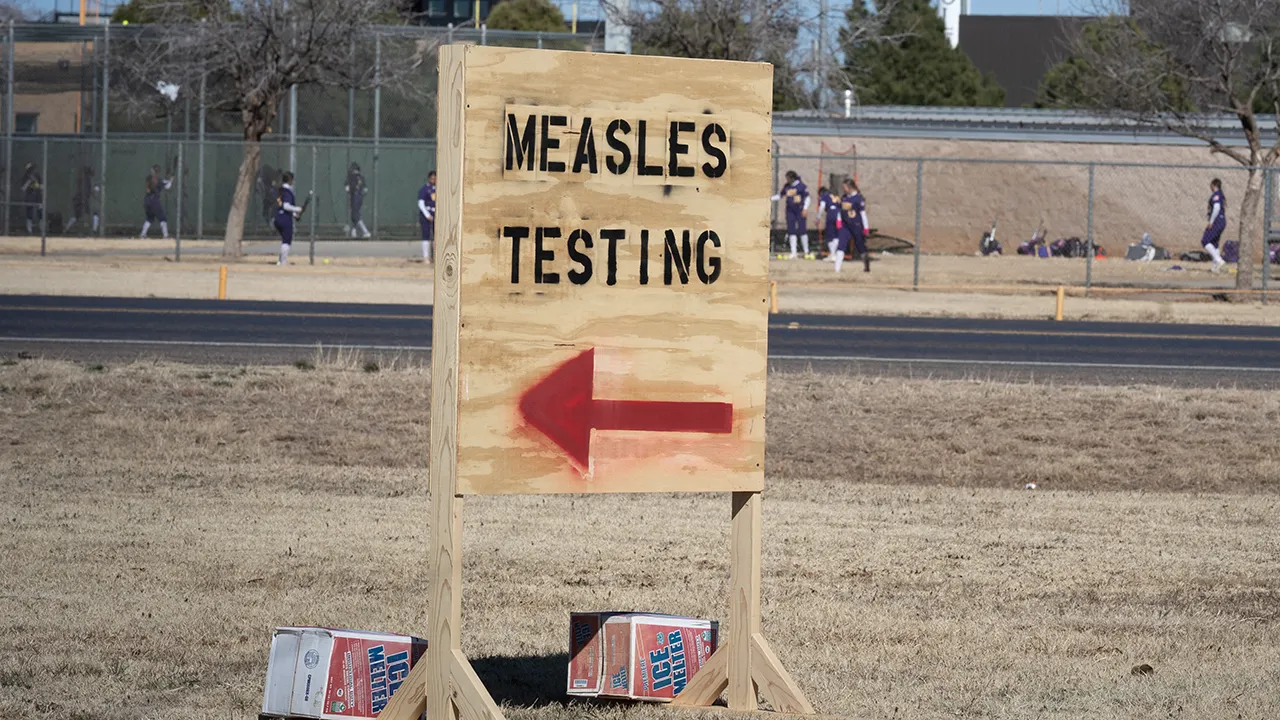Tragic Loss: Texas Reports Second Measles-Related Death Amid Vaccination Concerns
Texas health officials confirmed the state’s second measles-related fatality this year, marking a grim milestone in a growing public health crisis. The victim, an unvaccinated adult from the Houston area, succumbed to complications last week as measles outbreaks spread across under-immunized communities. The death has reignited urgent calls for improved vaccination rates and heightened preventive measures statewide.
Escalating Public Health Crisis
The latest fatality follows nine confirmed measles cases in Texas since January, with hospitalization rates exceeding 30%—a stark contrast to the CDC’s declaration of measles elimination in 2000. Nationally, 2024 has seen 121 cases across 18 states, with Texas among the top five for infection rates. “This death was preventable,” said Dr. Elena Ruiz, Chief Epidemiologist at the Texas Department of State Health Services. “When vaccination coverage drops below 95%, we lose herd immunity, and vulnerable populations pay the price.”
Data reveals troubling gaps in immunization:
- Only 89% of Texas kindergarteners received measles vaccines in 2023—below the national average
- Vaccination exemptions have risen by 28% since 2016, with “personal belief” waivers accounting for 63% of cases
- Pockets of Harris and Travis counties report MMR vaccination rates as low as 68%
Root Causes of the Outbreak
Experts attribute the resurgence to three converging factors:
- Vaccine hesitancy: Misinformation linking vaccines to autism—thoroughly debunked by 25+ global studies—continues circulating on social media.
- Healthcare disparities: Rural clinics face supply chain delays, while urban free clinics report 40% fewer wellness visits post-pandemic.
- Global travel: Unvaccinated travelers imported 82% of U.S. cases this year from countries with active outbreaks.
Pediatrician Dr. Marcus Webb of Houston Methodist Hospital describes the toll: “We’re seeing infants too young for vaccination develop pneumonia and encephalitis. One mother asked, ‘Why worry if measles is just a rash?’ That misconception kills.”
Community Responses and Countermeasures
Public health teams are deploying mobile vaccination units to high-risk zip codes, while schools with exemption rates above 5% must now host mandatory education sessions. Austin ISD nurse Leticia Ramos notes progress: “After implementing QR code consent forms, we vaccinated 300 kids in two weeks—but some parents still refuse over ‘natural immunity’ myths.”
Businesses are also taking action:
- Major hospital systems now require employee measles immunity verification
- Dallas-based Southwest Airlines offers staff $50 vaccine incentives
- Food banks partner with clinics to provide “jab-and-go” services
Legal and Ethical Debates Intensify
The tragedy has fueled legislative proposals to eliminate non-medical vaccine exemptions—a move opposed by libertarian groups. “Parental rights matter, but not when they endanger others,” argues State Rep. Diego Hernandez (D-San Antonio), sponsor of SB 437. Meanwhile, anti-vaccine activists like Parents for Medical Choice plan rallies, claiming “government overreach.”
Ethicists emphasize collective responsibility. “Your choice to refuse vaccination isn’t just personal—it’s a public health decision affecting cancer patients, newborns, and the elderly,” says Baylor College of Medicine bioethics professor Dr. Naomi Chen.
What Comes Next: Prevention and Preparedness
With back-to-school season approaching, officials urge:
- Verify vaccination records through the Texas Immunization Registry
- Isolate and report suspected cases immediately (measles remains airborne for 2 hours after exposure)
- Support community education through local health departments
As research continues into more heat-stable vaccines for global distribution, the CDC warns that current U.S. outbreaks could surpass 2019’s 1,274 cases if trends continue. For now, the Texas tragedy serves as a somber reminder: in public health, indifference proves deadlier than any virus.
Stay informed with your county health alerts and consult CDC guidelines for travel advisories and outbreak responses.
See more WebMD Network



